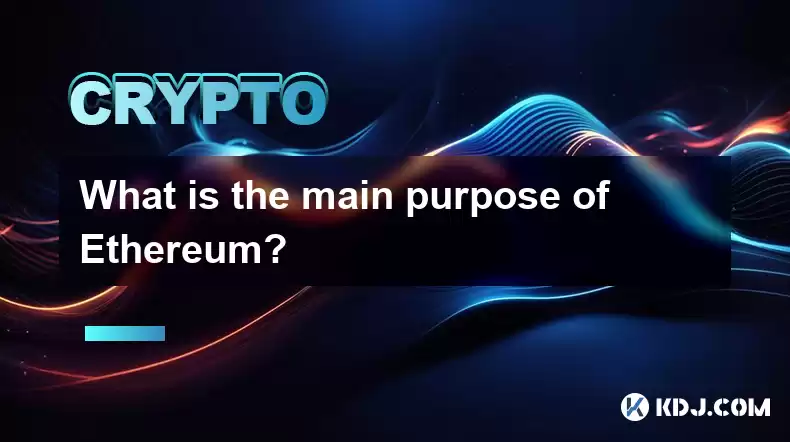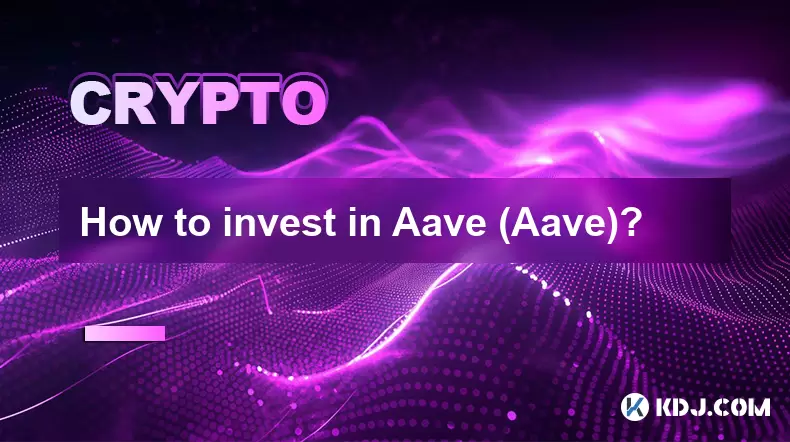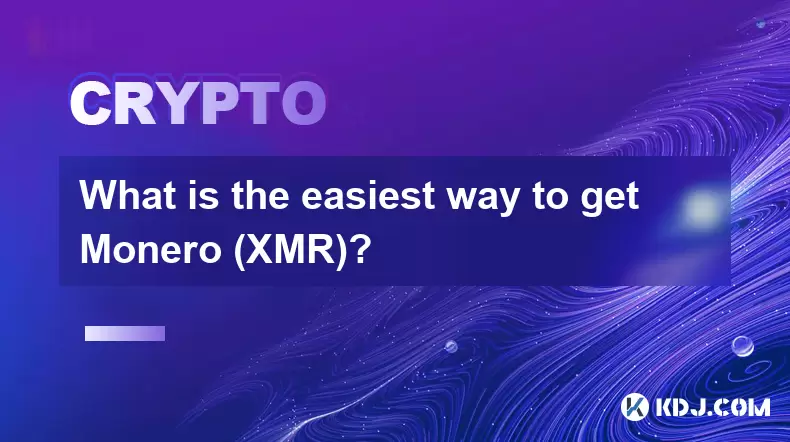-
 Bitcoin
Bitcoin $117400
1.88% -
 Ethereum
Ethereum $3867
5.29% -
 XRP
XRP $3.081
2.58% -
 Tether USDt
Tether USDt $1.000
0.03% -
 BNB
BNB $779.7
0.92% -
 Solana
Solana $171.8
2.11% -
 USDC
USDC $0.9999
0.01% -
 Dogecoin
Dogecoin $0.2172
5.80% -
 TRON
TRON $0.3413
1.41% -
 Cardano
Cardano $0.7641
3.06% -
 Hyperliquid
Hyperliquid $39.69
3.62% -
 Sui
Sui $3.731
6.73% -
 Stellar
Stellar $0.4125
3.55% -
 Chainlink
Chainlink $18.23
8.86% -
 Bitcoin Cash
Bitcoin Cash $579.5
1.41% -
 Hedera
Hedera $0.2538
4.02% -
 Ethena USDe
Ethena USDe $1.001
0.00% -
 Avalanche
Avalanche $22.81
2.82% -
 Litecoin
Litecoin $121.7
1.10% -
 UNUS SED LEO
UNUS SED LEO $8.962
-0.33% -
 Toncoin
Toncoin $3.324
2.94% -
 Shiba Inu
Shiba Inu $0.00001263
2.30% -
 Uniswap
Uniswap $10.24
4.95% -
 Polkadot
Polkadot $3.780
3.09% -
 Dai
Dai $1.000
0.03% -
 Bitget Token
Bitget Token $4.432
1.64% -
 Cronos
Cronos $0.1493
3.87% -
 Monero
Monero $256.7
-9.05% -
 Pepe
Pepe $0.00001092
3.99% -
 Aave
Aave $279.0
6.11%
What is the main purpose of Ethereum?
Ethereum, a decentralized blockchain platform, fosters the creation and utilization of decentralized applications through smart contracts, powered by its native cryptocurrency, Ether (ETH), serving as network fuel.
Feb 15, 2025 at 05:48 pm

Key Points:
- Ethereum is a decentralized, open-source blockchain platform.
- Its primary purpose is to facilitate the creation and execution of smart contracts.
- Ethereum's native cryptocurrency, Ether (ETH), is used as fuel for the network.
Main Purpose of Ethereum
Ethereum's primary purpose is to provide a decentralized platform for developers to build and deploy applications that leverage the benefits of blockchain technology. These applications, known as decentralized apps (dApps), operate independently of any central authority and are often more secure and transparent than traditional centralized applications.
Smart Contracts
Ethereum's key feature is its support for smart contracts. Smart contracts are self-executing contracts that run on the Ethereum blockchain. They automate the execution of predefined conditions and rules, eliminating the need for intermediaries and reducing the risk of fraud. Smart contracts can be used for various purposes, including financial transactions, supply chain management, and decentralized governance.
Ether (ETH)
Ether (ETH) is the native cryptocurrency of the Ethereum blockchain. It is used to pay transaction fees and execute smart contracts. The demand for ETH is driven by the growth of the Ethereum ecosystem and the increasing adoption of dApps. ETH holders can participate in the network's governance by staking their tokens and voting on platform upgrades.
Benefits of Ethereum
- Decentralization: Ethereum is not controlled by any single entity, making it resistant to censorship and manipulation.
- Open Source: Ethereum's code is open to inspection, verification, and modification, allowing for transparency and community involvement.
- Smart Contracts: Smart contracts provide a secure and efficient way to automate processes and create new financial instruments.
- Developer Support: Ethereum has a thriving developer community that contributes to the platform's growth and adoption.
FAQs
Q: What are the differences between Ethereum and Bitcoin?
- Purpose: Ethereum is designed for smart contracts and dApp development, while Bitcoin is primarily a store of value and medium of exchange.
- Transaction Speed: Ethereum transactions can take longer than Bitcoin transactions, especially during network congestion.
- Scalability: Ethereum is working on scaling solutions to increase its transaction throughput, while Bitcoin's scalability is limited by its block size.
Q: Is Ethereum a good investment?
- Investment Value: The value of ETH is volatile and influenced by various factors, including platform adoption, market sentiment, and global economic conditions.
- Investment Risk: Investing in cryptocurrencies carries a higher risk compared to traditional financial assets.
Disclaimer:info@kdj.com
The information provided is not trading advice. kdj.com does not assume any responsibility for any investments made based on the information provided in this article. Cryptocurrencies are highly volatile and it is highly recommended that you invest with caution after thorough research!
If you believe that the content used on this website infringes your copyright, please contact us immediately (info@kdj.com) and we will delete it promptly.
- Pi Coin's dApp and AI Potential: Building a Decentralized Future
- 2025-08-08 02:30:12
- Ruvi AI Takes the Lead: Outshining Dogecoin on CoinMarketCap
- 2025-08-08 02:50:12
- Cryptos Under $1: Is Ripple Still the King?
- 2025-08-08 03:50:12
- Cold Wallet, Bonk Price, ICP Price: Navigating the Crypto Landscape in 2025
- 2025-08-08 03:56:12
- Memecoins, Low-Cap Gems, and the Hunt for 10,000x Gains: What's Next?
- 2025-08-08 02:50:12
- Bitcoin, Greenidge, and Liquidity: Navigating the Crypto Currents in NYC
- 2025-08-08 02:30:12
Related knowledge

Where can I buy UMA (UMA)?
Aug 07,2025 at 06:42pm
Understanding UMA and Its Role in Decentralized FinanceUMA (Universal Market Access) is an Ethereum-based decentralized finance (DeFi) protocol design...

What exchanges support buying IOTA (MIOTA)?
Aug 07,2025 at 09:58pm
Understanding the Role of Private Keys in Cryptocurrency SecurityIn the world of cryptocurrency, private keys are the cornerstone of ownership and con...

What is the best app to buy EOS?
Aug 07,2025 at 04:35pm
Understanding EOS and Its Role in the Cryptocurrency EcosystemEOS is a blockchain platform designed to support decentralized applications (dApps) with...

What platforms support buying Fantom (FTM)?
Aug 08,2025 at 01:56am
Overview of Fantom (FTM) and Its EcosystemFantom (FTM) is a high-performance, scalable, and secure layer-1 blockchain designed to overcome the limitat...

How to invest in Aave (Aave)?
Aug 08,2025 at 01:07am
Understanding Aave (AAVE) and Its Role in DeFiAave is a decentralized finance (DeFi) protocol that enables users to lend, borrow, and earn interest on...

What is the easiest way to get Monero (XMR)?
Aug 08,2025 at 02:56am
Understanding Monero (XMR) and Its Privacy FeaturesMonero (XMR) is a privacy-focused cryptocurrency that ensures complete anonymity in transactions th...

Where can I buy UMA (UMA)?
Aug 07,2025 at 06:42pm
Understanding UMA and Its Role in Decentralized FinanceUMA (Universal Market Access) is an Ethereum-based decentralized finance (DeFi) protocol design...

What exchanges support buying IOTA (MIOTA)?
Aug 07,2025 at 09:58pm
Understanding the Role of Private Keys in Cryptocurrency SecurityIn the world of cryptocurrency, private keys are the cornerstone of ownership and con...

What is the best app to buy EOS?
Aug 07,2025 at 04:35pm
Understanding EOS and Its Role in the Cryptocurrency EcosystemEOS is a blockchain platform designed to support decentralized applications (dApps) with...

What platforms support buying Fantom (FTM)?
Aug 08,2025 at 01:56am
Overview of Fantom (FTM) and Its EcosystemFantom (FTM) is a high-performance, scalable, and secure layer-1 blockchain designed to overcome the limitat...

How to invest in Aave (Aave)?
Aug 08,2025 at 01:07am
Understanding Aave (AAVE) and Its Role in DeFiAave is a decentralized finance (DeFi) protocol that enables users to lend, borrow, and earn interest on...

What is the easiest way to get Monero (XMR)?
Aug 08,2025 at 02:56am
Understanding Monero (XMR) and Its Privacy FeaturesMonero (XMR) is a privacy-focused cryptocurrency that ensures complete anonymity in transactions th...
See all articles

























































































